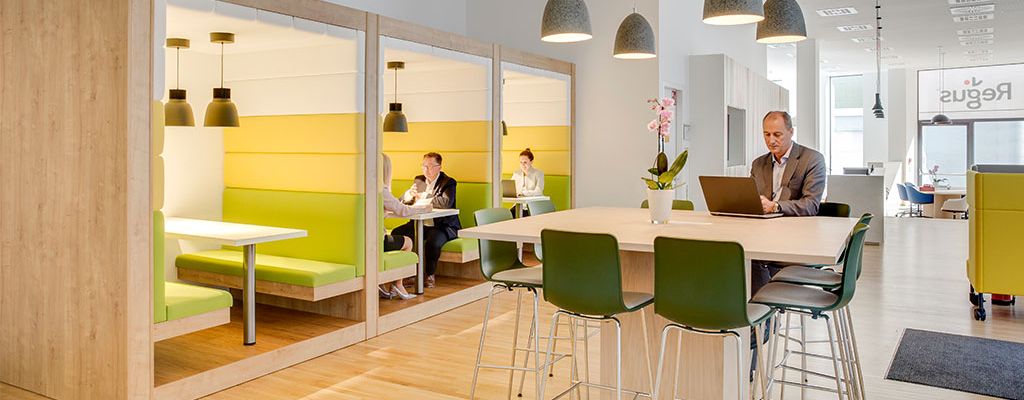
Reading time: 3 Minutes
Here’s why US cities like Phoenix, Arizona are adopting flexible working at lightning speed
In the past few years, an impressive start-up ecosystem has shot up in Phoenix, to the point where it’s being called the Silicon Valley of the Southwest.
So, it makes sense that flexible workspace is following suit in the Arizona capital, and is set to double in size this year to total 1.8 million square feet. Fledgling companies are seeking scalable office space, short leases and smart office solutions, and Regus is leading Phoenix’s co-working revolution with a strong presence from downtown to the desert surrounds of East Valley.
Aside from the tech boom, there are other catalysts for Phoenix’s thriving flexible workspace culture. The capital’s co-working-friendly conditions are typical of similar cities in the US. These destinations share progressive values, a healthy employment rate, vast geographic limits and a growing pool of talent. They are breeding grounds for businesses seeking a more flexible way of working.
“Phoenix is one of the fastest-growing cities in the US," says Neil Parker, North American Marketing Operations Manager for Regus. “With that growth, companies of all sizes are flocking here. This makes co-working very appealing because companies and individuals can get space on flexible terms to let their businesses grow naturally. They aren’t locked into long leases and have the flexibility to get space as their teams expand.”
The innovative business climate is attracting bright young things, and the city is at the fore of some game-changing tech. For example, it’s a major test market for self-driving vehicles, with start-up Waymo incorporating its automatically steered vehicles into the city’s Lyft car-sharing fleet.
Tech jobs in Phoenix were set to increase by 188% last year. But it’s not just technology driving the co-working revolution in Phoenix. The overall job market is steadily increasing in the state of Arizona, which is set to rise by 2.7% by next year, according to the Arizona Office of Economic Opportunity. In the capital, employment prospects in sectors such as construction and finance are also flourishing.
This can be seen in the diversity of the businesses that use of Regus’ flexible workspace locations in Phoenix. “We have clients from all industries that use us: tech, recruitment, legal, financial advisors, start-ups, fortune 100, fortune 500 – it really runs the gamut,” says Parker.
Another reason flexible workspace is thriving in the Arizona capital – and other North American destinations – is that it cuts out the long journey to the office. Phoenix is the fourth most expensive place to commute in the US, largely thanks to its sprawling size. The distance of the average round-trip journey to work is 23 miles, meaning that many people drive to the office – and that it’s the 25th most congested city in North America. It’s no wonder local businesses are looking for a smarter way to work.
“Phoenix is a very spread-out city so by having locations that are close to the suburbs allows clients to cut into their commute time and dedicate more time to their businesses,” says Parker.
In cities like Phoenix, the role of Regus Centres extends beyond four walls. For flexible workspace to be successful, it’s important to cultivate a sense of connection – both within the walls of a Regus Centre, and beyond. “Each Regus Centre tries to create a community within their communities,” says Parker. “We do building outreaches, and we try to give back as a market. In recent years we have also done charitable work with projects with JDRF.”
It means that even within a sprawling North American metropolis – where it’s easy to be a small fish in a big pond – growing businesses can find a place to forge a sense of community with like-minded entrepreneurs and plug in to the city’s potential.
Find out more about Regus in Phoenix


